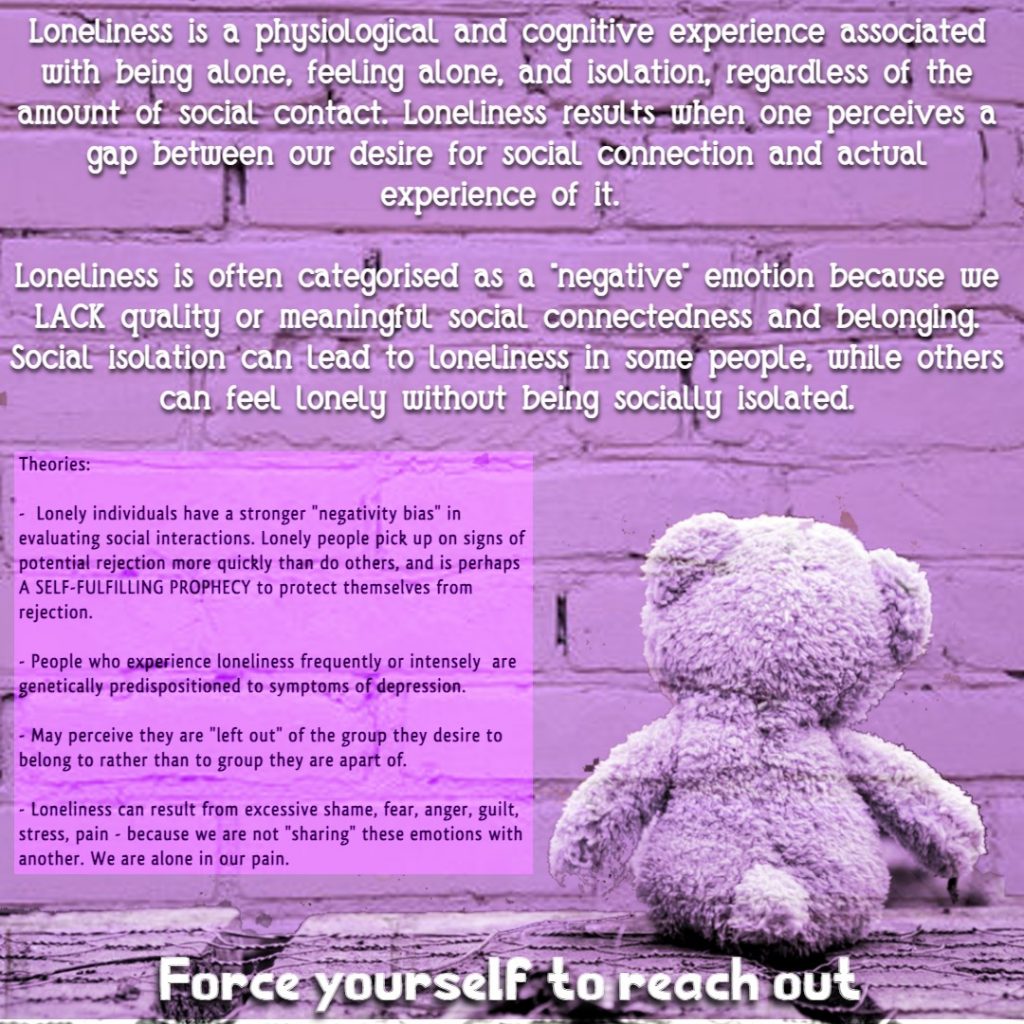The function of loneliness: it is a chemical messenger communicating to us that we need social interaction. It then motivates us to reach out and socialise with people and animals. For our social needs to be met, we require meaningful, genuine, equally balanced, amicable interactions. It often helps if we are also part of a group that is “bigger than ourselves” such as a sporting team, music band, tertiary studies community, our local community, or some other peer support group.
Loneliness is correlated to the quality of our relationships just as much as it is linked to the quantity of relationships we have. Aside from having a lack of quality relationships, other sources that may activate loneliness include living alone, being in quite environments, avoiding social activities, being “disconnected” from your community, feeling isolated or different from the people around you, and feeling alone within your experience of life and the world. For example, if you are someone who gets frustrated or stressed often, you may have an associated cognition that “no one understand how hard life is for you” and/or “even when I talk to people about my struggles, I don’t feel satisfied that they really heard me”, and this elicits loneliness i.e., You feel – and believe – you are alone in you pain and suffering.
Counselling, especially group therapy, can be helpful if you are experiencing loneliness, and I would encourage you to evaluate the relationships you do have, that is, ask yourself if they are authentic and meaningful to you. I would also reduce the time spent on social media. Making “friends” on social media can make us feel empty and lonelier in the long-term.

